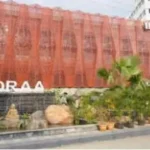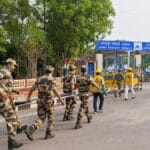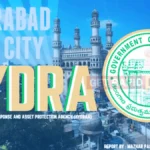The Firecracker Ban in Delhi-NCR has been upheld by the Supreme Court, citing severe air quality concerns. This move aims to reduce pollution and ensure a healthier environment for residents.

Citing consistently high levels of air pollution, the Supreme Court has refused to relax the Delhi-NCR ban on the production, sale, and storage of firecrackers. Street workers and other vulnerable groups are disproportionately affected by pollution, according to a bench made up of Justices Abhay S. Oka and Ujjal Bhuyan. The court emphasized the need to uphold the ban by pointing out that not everyone can afford an air purifier for their home or place of employment.
The bench brought attention to Delhi’s dire pollution situation by citing several directives issued in the previous six months. It reaffirmed that Article 21 of the Constitution, which covers the right to live in a pollution-free environment, encompasses the fundamental right to health. The court stressed that there was no reason to reevaluate the ban until there was concrete evidence that emissions from green crackers were negligible. The limitation is still in effect due to the “extraordinary situation” of air pollution in the city.
The Met office reports that Delhi’s minimum temperature was 15.6 degrees Celsius, which is 3.2 degrees colder than the season’s normal. According to data from the Central Pollution Control Board, the air quality at 9 am was classified as “poor,” with an Air Quality Index (AQI) of 219.
An AQI of zero to fifty is regarded as “good,” 51 to one hundred as “satisfactory,” 101 to two hundred as “moderate,” 201 to three hundred as “poor,” 301 to four hundred as “very poor,” and 401 to five hundred as “severe.”
Firecracker Ban in Delhi-NCR: In response to the ongoing air pollution crisis, Chief Minister Rekha Gupta announced in the assembly that the Delhi government will introduce a new policy for issuing Pollution Under Control (PUC) certificates for vehicles from other states. This move aims to strengthen pollution control measures in the national capital. The decision follows concerns raised in the Comptroller and Auditor General (CAG) report titled “Vehicular Air Pollution in Delhi,” which pointed out lapses in the city’s pollution control framework.
Firecracker Ban in Delhi-NCR: Supreme Court’s Move to Curb Pollution & Strengthen Air Quality Measures

The Firecracker Ban in Delhi-NCR is a crucial step in addressing the severe air pollution crisis in the region. The Supreme Court’s decision to uphold this ban reflects growing concerns over deteriorating air quality, particularly during festive seasons when firecracker emissions significantly contribute to pollution.
In response to this crisis, Delhi’s Chief Minister Rekha Gupta has announced a new policy aimed at tightening pollution control measures, particularly for vehicles from other states. Under this policy, stricter guidelines for issuing Pollution Under Control (PUC) certificates will be implemented. This move aligns with findings from the Comptroller and Auditor General (CAG) report, which highlighted gaps in the city’s pollution control strategies.
The ban and new vehicle regulations are part of a broader effort to combat Delhi’s worsening air quality, which has been linked to rising respiratory issues and environmental damage. While some argue that banning firecrackers alone won’t resolve the pollution crisis, experts emphasize that it is a necessary step alongside other long-term measures, such as promoting green energy, improving public transport, and enforcing stricter industrial regulations.
Despite opposition from some sections, citing cultural and economic impacts, the firecracker ban in Delhi-NCR continues to be a significant policy move towards a cleaner and healthier environment. The coming months will be crucial in determining the effectiveness of these measures in curbing pollution and improving air quality in the capital region.
















